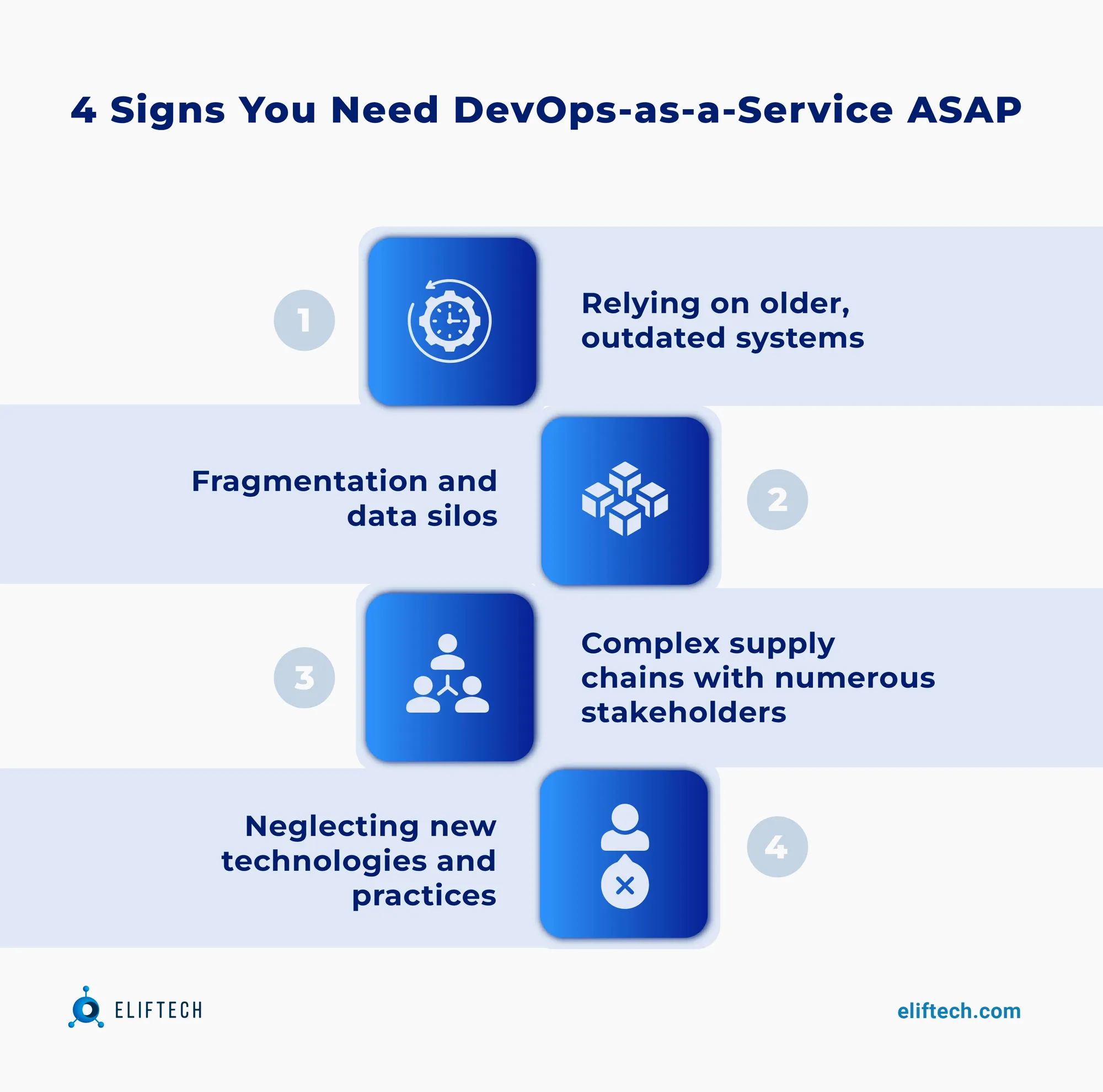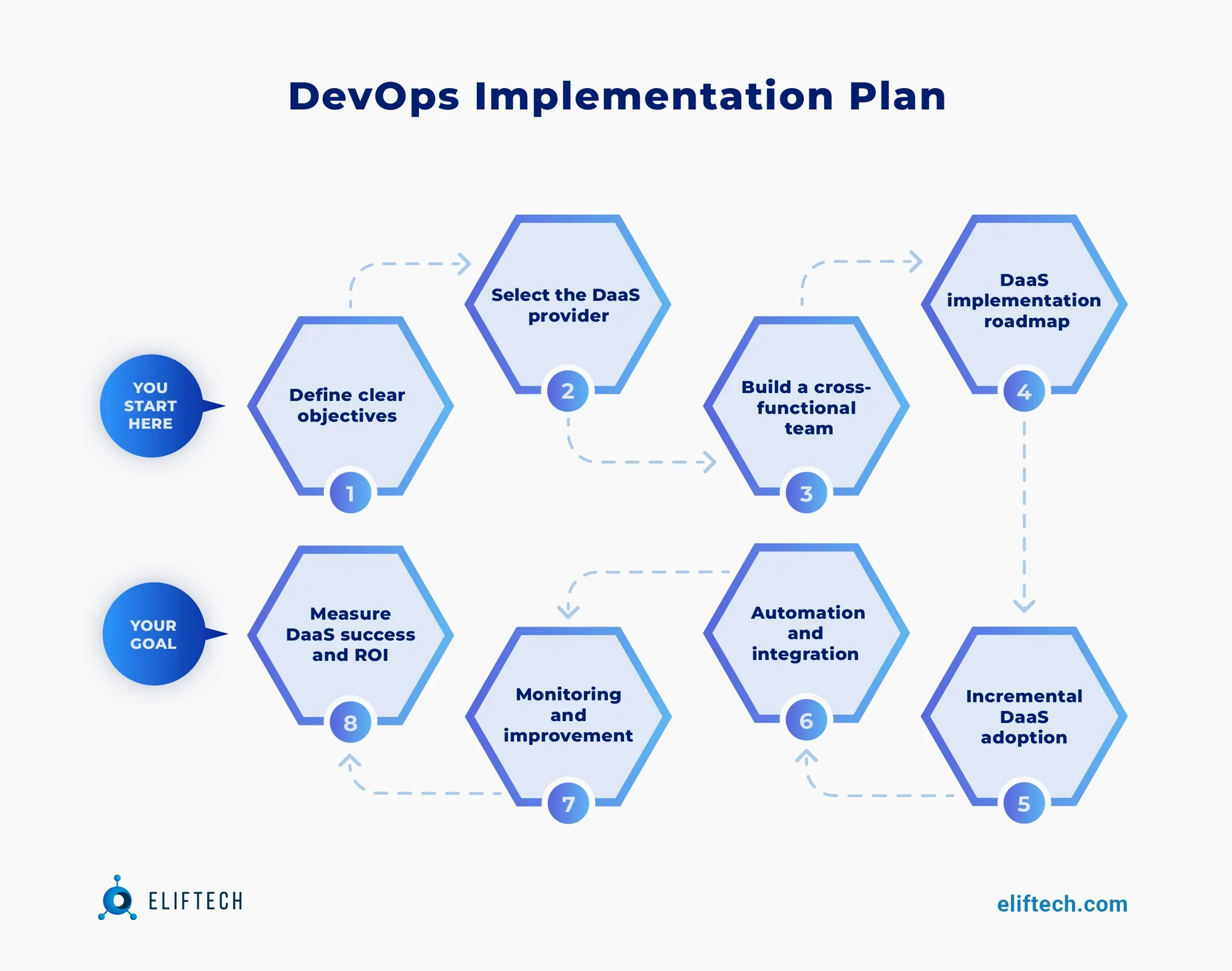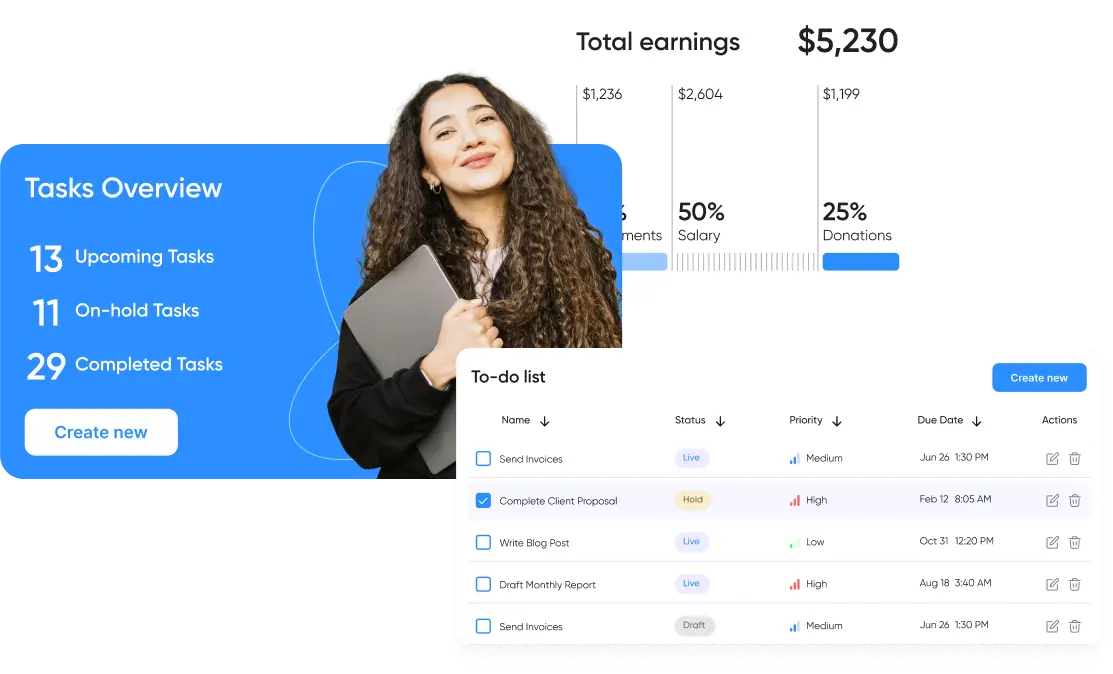Logistics
DevOps as a Service: The Key to Transforming and Optimizing Logistics Operations
Companies today want to release products and services quickly. With supply chain disruptions becoming more common, there's no room for big risks, questionable investments, or time to wait until things get better.
86% (563 out of 654 respondents) understand the need to create and roll out new software quickly considering DevOps valuable for their goals.
DevOps as a Service makes a significant impact on core business operations and development results. In logistics, DevOps seamlessly integrates into the organizational ecosystem, bringing together all logistics players – suppliers, manufacturers, distributors, and retailers, along with various tools, approaches, and new technologies – to work in sync.
However, its influence goes far beyond just getting the benefits of modern technology and tooling. DevOps fosters a consistent stream of innovation and value that flows throughout your core processes and organizational culture.
What is DevOps as a Service in Logistics?
In recent years, the logistics industry has undergone a significant transformation, largely driven by technological advancements. Automated systems are now used for tasks such as picking, packing, and transporting goods. Big data analytics play a crucial role in improving decision-making. IoT devices and sensors are increasingly being used to track and monitor shipments, vehicles, and inventory. Mobile barcode scanners help manage inventory options, among other innovations.
While this evolution presents great opportunities for logistics businesses, it also comes with challenges as they adapt to these new technological patterns.

DevOps as a service stands as a go-to solution to address them, in particular:
- Many logistics companies still rely on older, outdated systems that may not readily integrate with modern tools and technologies. Migrating from these systems is a technically complex and costly process that not all businesses can afford.
What DevOps offers in response? DevOps takes a step-by-step approach to upgrading things. Instead of suddenly changing everything and spending lots of money, logistics companies can use DevOps to mix old systems with new ones slowly. This means they can automate repetitive tasks and get the tech teams working together. In other words, DevOps tools help build a bridge between the old and new ways, making the transition smoother and less expensive. - Fragmentation and data silos occur when different parts of an organization use their systems to store information, resulting in a lack of data integration. This fragmentation can hinder informed decision-making and reduce overall efficiency.
What DevOps offers in response? DevOps offers a pragmatic approach to tackling data silos. Instead of imposing a costly and disruptive overhaul all at once, DevOps encourages incremental change. Think of it as gradually connecting these data islands. This approach allows for a smoother flow of data between different departments and teams, promoting better collaboration. - Logistics often involve complex supply chains with numerous stakeholders, including suppliers, manufacturers, carriers, and retailers. Coordinating this web of interconnected entities can be exceptionally challenging due to differing processes, technologies, and priorities.
What DevOps offers in response? DevOps is all about teamwork and talking to each other. In the context of complex supply chains, this means that different stakeholders can work together more efficiently. DevOps tools facilitate real-time visibility into supply chain operations, allowing for better coordination and decision-making. For example, automated alerts can notify relevant parties of any delays or issues in the supply chain, enabling faster responses. - Employees within logistics organizations still feel resistance to adopting new technologies and practices. This reluctance can slow down progress and become a real hard-to-fix bottleneck on the way to technological transformation.
What DevOps offers in response? DevOps also deals with another challenge - when employees don't like the idea of change. DevOps can help employees embrace change more quickly by shifting their focus toward collaboration and continuous improvement. Training and upskilling programs can be part of the DevOps adoption process, ensuring that employees can work effectively with new technologies and practices.
Plus, DevOps is all about being open and listening to what employees have to say. So, everyone is part of a big team, and their ideas matter in making things better.
Recommended article: Full Guide to Digital Transformation in Logistics
DevOps Principles and Methodologies
More and more companies are adopting the DevOps methodology for improved outcomes. Behind these high-quality results, there is a set of core principles that the DevOps methodology relies on.
- Culture of Shared Responsibility and Collaboration
DevOps breaks down the walls between development and operations teams. It encourages collaboration and shared responsibility across the entire software development and deployment DevOps lifecycle. As a result, teams work towards common objectives, cultivating a culture of unity and cooperation.
- End-to-End Ownership of Services
DevOps teams take full ownership of the complete service lifecycle, from design and development to deployment and maintenance. This holistic responsibility ensures that teams are fully accountable for the quality and reliability of their services, fostering a culture of ownership.
- Multi-Disciplinary Teams
DevOps encourages the formation of cross-functional teams that bring together individuals with a wide range of skills and expertise. These teams often include developers who create the software, operations engineers who manage the infrastructure, and quality assurance specialists who ensure the software works correctly. This diversity in skills allows for a more comprehensive approach to solving problems. It means that when challenges arise, there are people with different perspectives and know-how working together to find solutions.
- DevOps vs DevSecOps
It's also worth mentioning that while DevOps focuses on collaboration between development and operations teams, DevSecOps takes it a step further by integrating security into the DevOps process. DevSecOps teams go beyond traditional DevOps teams to include security experts who work to ensure that software is developed and deployed securely. Understanding the differences between DevOps and DevSecOps can help organizations make informed decisions about their team structures and priorities.
- DevOps Automation
DevOps puts a strong focus on automation, which means getting computers to do tasks that people used to do over and over again. This is important because it cuts down on mistakes that people might make, saves a lot of time, and makes sure things are done the same way every time. This makes everything work better and faster in the end, making the whole process more efficient.
- Incremental Improvements
DevOps promotes a philosophy of continuous improvement. Teams focus on making small, regular improvements over time rather than waiting for big, dramatic changes. This approach makes teams more flexible and better at adapting to changing needs.
- Delivery Flow Optimization
DevOps places a focus on optimizing the flow of work through the delivery pipeline. Continuous Integration (CI), Continuous Testing, and Continuous Deployment (CD) pipelines are key components of this principle.
CI simplifies how developers work by merging code changes into a shared repository, combined with automated testing to guarantee code reliability. So, Continuous Testing practice involves automatically running those tests for every code build. In this way, each time developers add code, an automated build checks it to catch any problems early in the process.
CD practice takes CI a step further by automating the deployment of code changes to production environments as long as they successfully pass testing. This means new code changes can be sent to production automatically whenever the business needs it.
- Constant Customer Feedback
DevOps places a strong emphasis on collecting feedback from customers and stakeholders at every stage of the software development process. This ongoing feedback loop helps teams spot where things could be better and then make changes quickly. This is also significantly important for staying in sync with what the customer wants. It helps avoid spending a lot of time on something the customer might not like by the time it's ready.
- Monitoring and Metrics
In DevOps, there's a lot of attention given to watching how everything is working. DevOps uses strong monitoring tools to oversee the work of software and systems. These tools keep an eye on things like how fast the software is running, how happy the users are, and if everything is secure. The numbers and data collected help teams make smart decisions and fix problems before they become big headaches.
Ready to transform your corporate ecosystem with DevOps principles to eliminate resource inefficiency, operational bottlenecks, and low delivery speed? Let us be your guide!
DevOps as a Service: Impact on Logistics Operations
Bringing DevOps principles into logistics represents a fundamental shift in how organizations handle their supply chains, optimize resources, and meet customer demands. So, what impact do the principles described above, including cloud DevOps, have on logistics operations?
Integration of Various Logistics Systems
DevOps as a service simplifies the integration of diverse logistics systems, ensuring that data flows smoothly between different stages of the supply chain.
DevOps do it by creating efficient API gateways. These gateways act like digital bridges, ensuring smooth communication between logistics systems, partners, and outside services.
This integration guarantees that important information flows smoothly between different parts of the supply chain. Whether it's tracking shipments, managing inventory, or coordinating with suppliers, DevOps ensures that everyone has the right information at the right time. This way, logistics operations become more efficient and responsive to customer needs.
Enhanced Security and Compliance
DevOps as a service takes security seriously. For logistics operations, security is critical because businesses handle vast amounts of confidential customer data. Not to mention that we live in an era where data breaches and cyber threats can have severe consequences.
One such DevOps practice is "Security as Code," which means that security measures are integrated into every stage of the logistics software development process. "Security as Code" transforms security from a static feature to a dynamic and proactive force within logistics operations. Moreover, the DevOps approach ensures compliance with industry regulations, offering peace of mind to businesses, customers, and partners.
Some of the actions taken when adopting DevOps:
- During development, automated security checks are performed at each stage.
- Developers follow strict security coding standards.
- After deployment, real-time monitoring tools continuously watch over the software's operations.
- If a security issue is spotted, a swift and precise response protocol is put into action.
Streamlined Workflow Efficiency
DevOps as a service identifies repetitive and time-consuming tasks like order processing, inventory management, and shipment tracking and automates them. These tasks, while essential, can be a drain on resources and inefficient when executed manually. This automaton not only speeds up these processes but also reduces the risk of errors, costs, labor requirements, delays, and customer dissatisfaction.
Moreover, automated processes are regularly reviewed and refined to ensure that they remain efficient and adaptable to changing logistics needs. This commitment to improvement keeps logistics operations on top of efficiency despite changes.
Efficient Resource Utilization
By automating tasks and processes, DevOps as a service optimizes the use of resources, including labor and infrastructure. It mainly does this by automation that, in turn, reduces the need for manual intervention, minimizes errors, and frees up human resources for more strategic tasks.
Moreover, DevOps not only frees up valuable human resources but also optimizes infrastructure usage. In logistics, this is especially beneficial during peak periods. DevOps enables logistics operations to allocate more computing resources to handle increased workloads efficiently and dynamically.
For example, when there's a surge in orders or shipments, additional server capacity can be provisioned to ensure smooth operations. During off-peak times, these resources can be scaled down, reducing costs while maintaining agility.
Data Management and Insights
DevOps for data management and insights transforms raw logistics data into a valuable asset. It achieves this by integrating, automating, and ensuring data quality, presenting it in a visual and understandable format, and enabling predictive analytics.
DevOps as a service not only integrates data from various logistics systems but also from multiple sources, both internal and external. This includes data from suppliers, partners, sensors, and more. This comprehensive data integration provides a more holistic view of the logistics ecosystem.
Some common DevOps data management practices for logistics needs:
- DevOps automates data cleansing, deduplication, and archiving, saving time.
- DevOps checks and validates data to maintain reliability and consistency.
- DevOps often employs tools like heatmaps and trend analysis for real-time, simplified insights.
Automated Testing and Software Delivery
DevOps practices hold the key to transforming operations, giving businesses a competitive edge. By embracing these practices, businesses can enjoy top-notch software performance, speedy updates, and enhanced overall efficiency.
Some of the best DevOps practices used to get these results:
- DevOps streamlines code integration, regularly consolidating software updates into a unified codebase.
- DevOps initiates automated testing pipelines, including order processing, inventory management, and route optimization tests, covering unit, integration, and end-to-end scenarios.
- DevOps ensures test environments reflect production setups, reducing missed issues during testing.
- DevOps automatically deploys validated code changes to ensure quick and reliable releases.
- DevOps automation tools handle tasks like route optimizations and order processing, reducing errors and downtime in logistics.
8 Strategies for DaaS Implementation in Logistics

Every demand comes from a need. The better you understand your needs, the more accurate your results will be. This concept applies to DevOps as well. To drive a successful implementation of DaaS in logistics, it's essential to have a well-thought-out implementation strategy. We have a few ideas to share with you.
Step 1: Defining Clear Objectives for DaaS Implementation
Start by identifying specific logistics challenges that DevOps solutions can address. For example, if you want to optimize route planning, clarify whether the goal is to reduce delivery times, lower fuel costs, or improve customer satisfaction. Or, if your aim is to enhance inventory management, specify whether the goal is to reduce storage costs, minimize stockouts, or optimize order fulfillment. Clear objectives help focus efforts.
Step 2: Selecting the DaaS Provider
When choosing a DaaS provider, it's essential to consider several factors. If you're you aimhere to find such providers, begin by exploring reliable online resources like Clutch, following recommendations, or connecting with them at offline conferences. In either case, you'll gain a better understanding of whether the provider aligns with your needs once you engage in direct conversations with them.
Firstly, evaluate the provider's reliability during an initial call. Briefly outline your situation and needs, and ensure they can offer a clear, logical, and relevant solution for how DevOps can specifically benefit your logistics requirements.
Secondly, ensure the DaaS provider offers agile DevOps services to accommodate your growing business needs. They should have the capability to support your long-term growth strategy and provide flexibility in service offerings to align with your specific objectives.
Moreover, industry expertise is crucial; a provider with experience in the logistics sector is more likely to offer solutions that align with industry-specific challenges and DevOps best practices.
Lastly, consider communication as a crucial factor. Choose a provider that values open communication and actively involves your teams in planning and execution. An ideal DaaS partner should act as an extension of your internal team, fostering a collaborative environment focused on driving growth—the core principle and mission of DevOps.
Step 3: Building a Cross-Functional Team
Building a cross-functional team is critical because their combined knowledge ensures a comprehensive approach to DaaS implementation.
The DevOps team should include people with various skills, like logistics specialists, IT experts, and data analysts. Logistics experts understand the industry's unique demands, IT professionals can navigate the technical aspects, and data experts bring analytical skills. This teamwork bridges the gap between technology and business needs, ensuring a smooth DaaS integration. Together, they make the implementation of the DevOps process successful and comprehensive.
Step 4: Designing a DaaS Implementation Roadmap
Develop a comprehensive DevOps roadmap that outlines not only the timeline but also the dependencies between tasks and milestones. Include data integration plans specifying how data from various sources will be collected, cleaned, and integrated. Identify necessary technology upgrades or infrastructure changes and allocate time for staff training to ensure a smooth transition.
Step 5: Incremental DaaS Adoption
Consider implementing DevOps as a service incrementally rather than all at once. Start with a pilot project or a specific use case to test DaaS capabilities. This approach allows you to evaluate its impact on a smaller scale, troubleshoot issues, and build confidence among stakeholders before expanding DaaS implementation across your entire logistics network.
Step 6: Leveraging Automation and Integration
Automation is at the core of successful DaaS implementation. Integrate DaaS seamlessly with your existing logistics systems, such as transportation management systems (TMS), warehouse management systems (WMS), or order management systems (OMS), for a more efficient flow of data. Implement automation processes wherever possible to realize efficiency improvements and reduce manual errors from the outset.
Step 7: Continuous Monitoring and Improvement
Set up a system to keep an eye on the important performance measures (KPIs) and metrics linked to your logistics goals. Make it a habit to check data quality, how well the systems are working, and what users have to say. Then, take what you learn from this monitoring to keep making your DaaS setup better. This way, you'll make sure it keeps fitting with where your business is headed.
Step 8: Measuring DaaS Success and ROI
Define a set of measurable success criteria to evaluate the impact of DaaS on your logistics operations. Track improvements in key areas like cost savings, delivery accuracy, customer satisfaction, or supply chain visibility. Measure the ROI by comparing pre-DaaS and post-DaaS performance in logistics. Calculate the ROI by comparing the costs and benefits of DaaS implementation to demonstrate its value to your organization.
DevOps as a Service for Logistics: Partnership with ElifTech
ElifTech brings a decade of experience in helping logistics organizations, particularly in maximizing the benefits of automation through modern DevOps technologies, and industry best practices.
Custom DaaS solutions will automate manual processes, reduce inefficiencies, and enhance visibility, and overall logistics management. An expert DevOps team will help you speed up software operations, enhance productivity, and drive high-quality releases wherever there are gaps, starting from order processing and tracking to warehouse management and transportation logistics. We achieve this by enabling better collaboration, quicker feedback loops, and more data-driven insights.
Ready to explore how DevOps can enhance your warehouse and inventory management system? Apply for a free consultation to find out how ElifTech can help you improve supply chain visibility and deliver more value to your customers!
Conclusion
The recent problems in supply chains and logistics have been massive and resource-intensive.
It might seem like DevOps only deals with these issues using technology, but it does more than that. DevOps not only helps companies achieve their goals of becoming more digital but also makes their processes, operations, and communication better. This means it saves them time and effort, which is really important when businesses are facing disruptions and need to manage their budgets wisely.
Browse our case studies and get actionable insights to drive your success
See more
